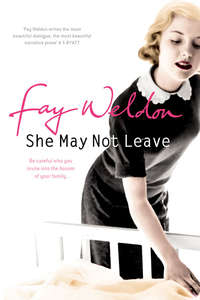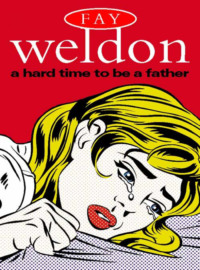
Полная версия
Godless in Eden
Sure, it’s men’s turn, but the aim of feminism was not to win, not to put men down, but to achieve equality: to be allowed to be a person first and of a certain gender second. These rights are now encapsulated in law. But how about the rights of a teenage boy in a working-class area? Girls jeer at you, police harass you, teachers (mostly female) give up on you. School inspectors shake their heads over you. Ofsted maintains that the underachievement of boys, particularly white, working-class boys, is one of the most significant problems that schools face today. Parents find you impossible. Old ladies cross the street to avoid you. What do you look forward to? Insecurity is the name of the male game. Thirty percent of all our unemployed are under twenty-five; and of that thirty, twenty are male, ten are female. Twice as many. Male unemployment goes up, female unemployment goes down. One in three men have suffered at least one period of unemployment in the last five years. Once a man could look forward to starting a family and the gravitas and dignity that came from being the family provider. Forget it. At best as a man you’re decorative and look after the kids, and earn a bit sometimes, at worst you’re a write-off. Women are elbowing the men out. The boys get anxious, the girls swagger. The male suicide rate goes up, female down.
Twenty-eight percent of us now live in single person households – a lonely and unnatural state – and most of the twenty-eight percent consists of young single men. It is strange that it is left to a woman to suggest in the normal nurturing way that men start some kind of movement to promote their gender’s status and self-esteem – call it masculinism, homoism, brotherism, machoism, what you want – and some mark of the success of the feminist movement, that it needs to be done.
So who needs a man?
The Fish and the Bicycle
Back in the seventies feminists slapped up a poster which announced to a startled and disbelieving public: ‘A woman needs a man like a fish needs a bicycle.’ That is to say, she didn’t need one at all. Time, for good or bad, has proved that once unlikely poster right. The world changed: the laws changed: and any young woman these days can live without a man. She may not want to, but she can. It may feel unnatural, she may be lonely at night, but she has her freedom and her financial independence. She can earn, she can spend, she can party. She can find casual sex if she wants to and there’s contraception to ward off babies. (Because what she can’t have, if she values her freedom and independence, is a baby.)
If a woman is young, bright, educated, able-bodied, attractive, childless and in the professions she can live very happily indeed. And just as well, because this seems to be the kind of woman – like poor, nervy Ally McBeal: poor all-over-the-place Bridget Jones – who these days has to do without a man. ‘No wonder,’ observes my mother, who is ninety-one. ‘She’s too proud and picky for her own good. She wants someone she can look up to, and where’s she going to find him?’ New Woman, claims my mother, shocks potential partners to the core by demanding sex and refusing love (just as men once used to) so he’s off and away by morning. ‘And if they’re not shocking him they’re insulting him,’ says my mother. ‘So who can blame him?’
Sexism becomes something more directed towards men by women than from men towards women. Women can speak about men as men can no longer speak about women (at least in company). To do so becomes so much a cultural knee-jerk women don’t even notice they’re doing it. It is commonplace to hear the entire male gender written off as selfish, obtuse and bullying; rapists in spirit if not in deed. ‘Men, who wants them? Who needs them?’ And men laugh uneasily but, astonishingly, collude in this description of themselves. Men are portrayed as braying, despicable fools in cartoons, books, plays and advertisements. Male journalists and TV interviewers, talking to me on ‘pity the poor men’ themes, are even more scathing than traditional feminists. ‘But we’re crass fools,’ they say, in effect, ‘How can you have a good word to say for us?’ They behave like hostages who have fallen in love with their captors; with the colonised who admire the colonisers: I am perpetually amazed. Try writing a film these days about a woman who isn’t ‘strong and independent’. It won’t get made. You can be as insulting as you like about men.
When girl-babies are born – certainly in my part of London – there’s rejoicing: if it’s a boy, it’s, Oh well, better luck next time. Because it’s girls who on the whole look adorable, who don’t bang and crash about, who pass exams, take fewer drugs, don’t crash cars or go to prison, who get the jobs as school-leavers and satisfy today’s definition of what a good citizen is: a responsible, caring, sharing, nurturing, hard-working, mortgage-paying, not over-intellectual person, without too much aggression and not inclined to rock the boat: someone who makes a good employee. A woman, in fact. This is the age of oestrogen, not testosterone. Men begin to have a low self-image that women once had. The suicide rate for young males grows at an alarming rate, for outstripping that of young women. So yes, pity the poor men, whose maleness has become unfashionable. Even the male models are all gay, everyone knows. Pretty boys.
Конец ознакомительного фрагмента.
Текст предоставлен ООО «ЛитРес».
Прочитайте эту книгу целиком, купив полную легальную версию на ЛитРес.
Безопасно оплатить книгу можно банковской картой Visa, MasterCard, Maestro, со счета мобильного телефона, с платежного терминала, в салоне МТС или Связной, через PayPal, WebMoney, Яндекс.Деньги, QIWI Кошелек, бонусными картами или другим удобным Вам способом.








